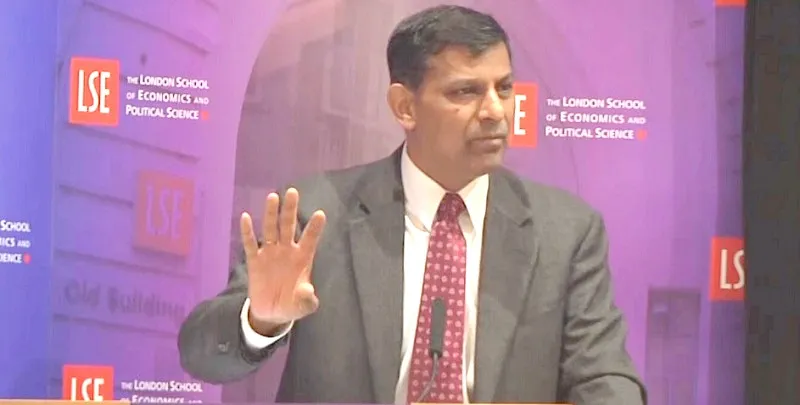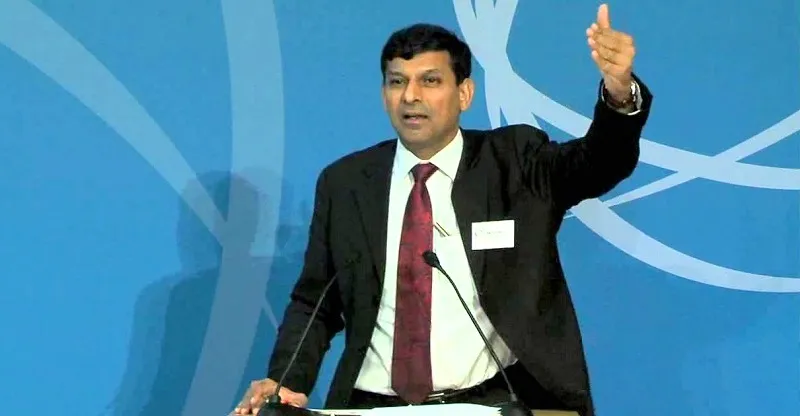Six memorable speeches by Raghuram Rajan
It was with great sadness we read Raghuram Rajan’s resignation letter to the RBI – to lose a Governor of his calibre is a loss indeed. The man went far beyond his role – his policies elevated India from fiscal trouble, and his handling of the falling rupee earned him fame and repute in every Indian household. He became a public personality whose comments on a variety of issues were held in the highest regard by the public.
Related read: Raghuram Rajan bids farewell, will not seek a second term as RBI Governor
He often chose his own home ground – academic institutions – for speaking his mind on key issues – seemingly without any fear of how his thoughts would be received. Here are seven bold, impactful, and pertinent speeches he made when the occasion demanded it:

Taking a stand against intolerance
In the midst of the heated debate on intolerance that had whipped the nation into a fervor last year, Raghuram Rajan made a brave speech that did not pander to the government line and instead took a stance against intolerance. The speech was made at the convocation of his alma mater IIT Delhi in the aftermath of the lynching of Mohammed Akhlaq by a mob ostensibly for his possession of beef, when the government was under fire for allowing intolerant and repressive elements to grow rampantly. He emphasised the importance of a competition of ideas to achieve any kind of progress, and drew on historical and cultural examples to show India’s tradition of debate and tolerance. He encouraged his audience of students to keep challenging and questioning, because “IITians like you will lead India’s race for ideas.” With no reference to any specific events, the barbs were clear as he joined President Mukherjee in his subtle criticism of the government.
“As you go out in the world, remember our tradition of debate in an environment of respect and tolerance. By upholding it, by fighting for it, you will be repaying your teachers in this great institution, and your parents who worked so hard to send you here.” He mentioned,
Tolerance means not being so insecure about one's ideas that one cannot subject them to challenge - it implies a degree of detachment that is absolutely necessary for mature debate.
Why corrupt politicians win elections
Rajan gave a powerful speech in 2014 at the 20th Lalit Doshi Memorial lecture, where he took stock of where we have reached as a nation, politically and economically, since Independence. The speech talked about how as a nation we have allowed the growth of crony capitalism, which has resulted in a system wherein “our provision of public goods is unfortunately biased against access by the poor”. He explained how crafty politicians take advantage of this situation to buy votes using freebies and dole-outs, enlisting the support of the people they help exploit. He concluded with recommendation of how the state can fix this:
To strengthen the independent democracy our leaders won for us sixty-seven years ago, we have to improve public services, especially those targeted at the poor.
Words matter but so does intent
The intriguing title to the speech that served as the response to all the criticism for the “andhon main kana raja” comment does not capture everything this excellent speech encompasses and discusses. Another convocation speech, this one tells us not to give offense and not to take offense. Brilliantly, he sidesteps the debate on how his comment delegitimised India’s growth by apologising to the blind, and how, while listeners should not be eager to take offense, speakers should be careful not to strengthen biases with the words they use. But he also responds –
I cannot get euphoric if India is the fastest-growing large economy…with manufacturing capacity utilisation low at 70 percent and agricultural growth slow following two bad monsoons, our potential is undoubtedly higher. We are still one of the poorest large countries in the world on a per capita basis.

Did you fiddle with the numbers?
Though he denied saying anything so explicit, Raghuram Rajan has on multiple occasions raised concerns about the jump in the GDP growth number from 5 percent to 7 percent after the NDA government implemented its new technique of calculating the growth. He points to a “discrepancy” in the high GDP growth compared with other economic indicators, and suggests that migration and other such artificial boosters contribute to the number but don’t reflect any actual growth. But he clearly said:
The growth is weaker than the headline number suggests.
The killer first speech
With his first speech as Governor, Raghuram Rajan set the stage for the kind of tenure that was to follow. He outlined a clear plan that he intended to pursue in all aspects of the economy, and made it clear that he would not be shaken from this sure vision.
“Some of the actions I take will not be popular. The Governorship of the Central Bank is not meant to win one votes or Facebook "likes". But I hope to do the right thing, no matter what the criticism, even while looking to learn from the criticism.”
He ended with a quote from Rudyard Kipling’s If: “If you can trust yourself when all men doubt you, But make allowance for their doubting too.”
Democracy, inclusion, and prosperity – not Hitler!
An excellent speech, which was reduced by the media only to that one reference to Hitler, this treatise on politics was given by Rajan at the Ideas Festival in Goa. It was the day the RBI had signed an important agreement on monetary policy with the government, and the focus became the fact that Rajan had used the H-word to explain that strong government alone is not the path to development. However, he referenced a number of other political regimes and historical incidents to make a larger point about how freedom of thought and action, and democratic rights, are required for India to be a prosperous country.
Democratic accountability means that government has to be popularly accepted, with the people having the right to throw unpopular, corrupt, or incompetent rulers out. His was a strong government, but Hitler took Germany efficiently and determinedly on a path to ruin, overriding the rule of law and dispensing with elections.
His attitude is best captured by the time he quipped, “My name is Raghuram Rajan and I do what I do.”
Many commenters are concerned by the loss of a brilliant economist and successful policymaker at the helm of India’ central bank. More palpable, however, is the loss of someone who had the courage to contradict the government when required and the confidence to defy public opinion and stand by the correct policy. He fought the government on the issue of high interest rates, and though they may have made him unpopular, they have rescued India from the fragile position it was in when he arrived.
This clear eyed statesman will be sorely missed!







